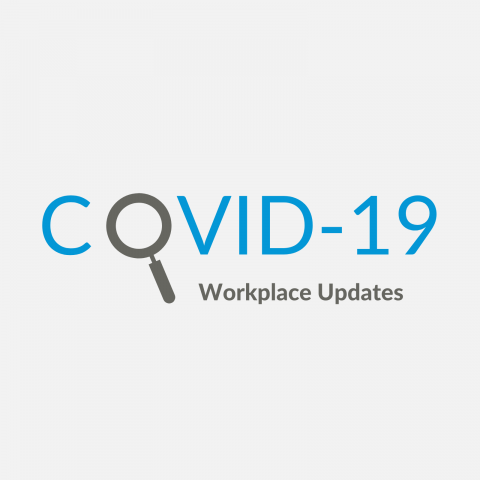COVID-19 Updates | Weekly Workplace Recap from December 18 to December 23, 2020

Sign up for COVID-19 EMAIL Updates
If you receive our newsletter,
you're already signed up!
Below are the key announcements from the Federal, Ontario, Manitoba, Saskatchewan and BC governments that touch on workplace issues from December 18 to December 23, 2020.
Federal
Boosts CEWS Rate to 75%
The federal government has concluded the necessary regulatory changes to raise the maximum Canada Emergency Wage Subsidy (CEWS) rate to 75% for the December 20, 2020 to March 13, 2021 period.
In addition, employers can now access the maximum subsidy rate based on a single month’s revenue decline instead of having to demonstrate three months’ decline.
For more information, check out this news release.
Launches the CEWS Registry
The CRA has launched the Canada Emergency Wage Subsidy Registry which allows Canadians to identify which employers are using the CEWS program to support jobs.
Any company that believes it has been listed in error is asked to contact the CRA.
Search for employers who received CEWS.
Ontario
Extends Deadline around COVID-related Temporary Layoffs
Under O.Reg. 765/20, Ontario is extending regulatory amendments brought forward in the Infectious Disease Emergency Leave made under the Employment Standards Act. The definition of “COVID-19 period” in O.Reg. 228/20 is amended by striking out January 2, 2021 at the end and substituting July 3, 2021.
The changes include putting non-unionized employees on job-protected leave during the COVID-19 outbreak any time their hours of work are temporarily reduced by their employer due to the pandemic to prevent temporary layoffs from becoming permanent.
For more information, check out this news release.
Introduces a new Small Business Support Grant
The new Ontario Small Business Support Grant will provide a minimum of $10,000 and maximum of $20,000 to eligible small business owners.
Small businesses required to close or restrict services under the province-wide shutdown will be able to apply for this one-time grant. Each small business will be able to use the support in whatever way makes the most sense for their individual business. For example, some businesses will need support paying employee wages or rent, while others will need support maintaining their inventory.
Eligible small businesses include those that:
- Are required to close or significantly restrict services due to the Provincewide Shutdown being imposed across the province effective 12:01 a.m. on December 26
- Have fewer than 100 employees at the enterprise level
- Have experienced a minimum of 20% revenue decline in April 2020 compared to April 2019.
Further details, including how to apply for the Ontario Small Business Support Grant, will be announced in January 2021.
For more information, check out this backgrounder.
Manitoba
Protects Employers with Defined Benefit Pension Plans
The Manitoba government will temporarily waive certain payments businesses are required to put into pension plans, freeing up funds to help protect employees and prevent layoffs or shutdowns.
The province is permitting pension plans to elect a moratorium on payments to pension plans that employers are required to make under defined benefit pension plans for the remainder of 2020 and all of 2021.
Under the protection of the moratorium, businesses will be exempt from making unfunded liability and solvency deficiency payments until the end of 2021.
For more information, check out this news release.
Saskatchewan
Opens Applications for Strong Recovery Adaptation Rebate
Applications for the Strong Recovery Adaptation Rebate (SRAR) program are now open and will be accepted through to March 31, 2021.
SRAR was established to reimburse eligible small businesses in Saskatchewan for incremental expenses made to adapt their business models to operating during the COVID-19 pandemic. Business adaptation investments include incremental, one-time expenditures aimed at establishing physical barriers or reconfiguring space to operate safely, providing services through digital tools, providing new or different services or products, and shifting to delivery or curb-side services.
More information about benefits, eligibility and how to apply can be found on Strong Recovery Adaptation Rebate (SRAR).
British Columbia
Increases COVID-19 Workplace Safety Requirements for Employers
On December 17, the PHO issued a Workplace Safety Order that includes a number of requirements for all employers, including:
- Employers must review their COVID-19 Safety Plan to ensure that the plan adequately protects workers from the risk of COVID-19 transmission in the workplace and is consistent with WorkSafeBC requirements. The Reviewing and updating your COVID-19 safety plan: A guide for employers resource from WorkSafeBC may be helpful for employers in reviewing their plans.
- Employers must ensure that workers are prohibited from entering the workplace if they have symptoms of COVID-19 or have had a potential exposure through a health check.
- Employers must encourage workers to work from their private residence wherever possible, unless there is a preference on the part of the worker or the employer for the worker to work at the workplace.
- COVID-19 Safety Plans must include measures to prevent workers from congregating or crowding in indoor common areas, such as elevators, lobbies, hallways, stairwells, corridors, bathrooms, meeting rooms, break rooms, and kitchens.
This order will remain in place for the all areas of the province until January 8, 2021.
For more information, check out this Workplace Safety Order.
Opens Applications for BC Recovery Benefit
Online applications are now open for British Columbians to apply for the BC Recovery Benefit.
An estimated 3.7 million individuals and families, or 90% of all B.C. adults, are eligible for the benefit. Eligibility includes:
- $1,000 for families with annual incomes under $125,000. Families earning up to $175,000 will qualify for a reduced benefit amount. Single-parent families also qualify for these benefit amounts.
- $500 for single people with annual incomes under $62,500. Single people earning up to $87,500 will qualify for a reduced benefit amount.
Applying online for the BC Recovery Benefit.
Sign up for COVID-19 EMAIL Updates
If you receive our newsletter,
you're already signed up!


